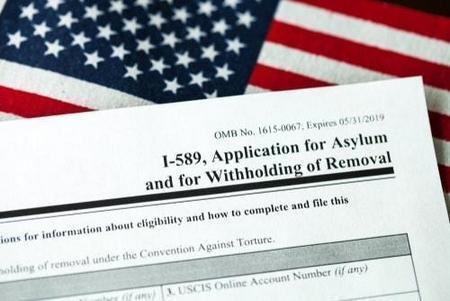Recent Blog Posts
Do Millennials in Their 20s and 30s Need Prenuptial Agreements (Prenups)?

Members of the Millennial generation, who are now aged 23 to 38, are more likely to want a prenuptial agreement than prior generations. They are also more likely to approach the idea of a prenups as partners rather than as one wealthy person trying to protect his or her assets. Why is this, and what are the benefits of a prenup for younger couples?
Millennials Are Starting Marriage Differently
Millennials are more likely to seek a premarital agreement than their parents and grandparents due to their age and status at the time of their marriage.
Millennials are marrying later, which means they are more likely to have more debts and assets than someone who marries at age 18 or 22.
-
In 1970, the median age at first marriage was 20.8 years for women and 23.2 years for men, according to the US Census Bureau.
-
By 1990, the ages had risen to 23.9 years for women and 26.1 years for men. In other words, there was a substantial increase in the number of women who were at least old enough to have graduated from college before marrying.
What Is Negligence, and How Does it Affect Car Accident Injury Cases in Illinois?
Being involved in an auto accident can be scary, even when the collision is minor and there are no injuries. In some cases, car accidents may cause serious injuries that leave victims with painful conditions that can last for the rest of their lives. A vehicle crash can also result in costly medical bills, lost wages, expensive auto repairs, and other damages. Fortunately, a victim may pursue a personal injury that will allow them to recover compensation that will cover all or some of those expenses. To do so, the other driver's negligence must be proved using four elements: duty of care, breach of duty of care, causation, and damages.
Duty of Care
The idea behind negligence in Illinois is that drivers have a duty to take reasonable measures to ensure they do not hurt others who are on the road. This means that drivers are responsible for obeying all traffic laws and using other precautions when driving. Examples of obeying this duty of care include:
How Does the “Remain in Mexico” Agreement Impact Migrants Seeking Asylum in the United States?
 The topic of immigration has been in the news a lot lately. Just recently, President Trump announced the United States and Mexico agreed on a plan involving South American migrants seeking asylum in the United States. Under the terms of the agreement, these immigrants will wait in Mexico until their hearing dates in U.S. immigration courts. It could take several months or even years for their claims to be adjudicated. During their stay, they will be granted rights and access to jobs, medical care, and education. According to the Department of Homeland Security (DHS), the plan is called “Remain in Mexico.” Proponents of the agreement believe it will help with the inflow of migrants at the U.S.-Mexico border, but whether that is true remains to be seen.
The topic of immigration has been in the news a lot lately. Just recently, President Trump announced the United States and Mexico agreed on a plan involving South American migrants seeking asylum in the United States. Under the terms of the agreement, these immigrants will wait in Mexico until their hearing dates in U.S. immigration courts. It could take several months or even years for their claims to be adjudicated. During their stay, they will be granted rights and access to jobs, medical care, and education. According to the Department of Homeland Security (DHS), the plan is called “Remain in Mexico.” Proponents of the agreement believe it will help with the inflow of migrants at the U.S.-Mexico border, but whether that is true remains to be seen.
Immigration Crisis
Prior to reaching this new agreement, the United States government had threatened to impose tariffs on Mexican goods coming into our country. This was in response to the overwhelming number of immigrants flooding the U.S.-Mexico border. Currently, people seeking asylum at the U.S. border are sometimes sent to detention centers, temporary shelters, or tent cities while they await processing of their claims. A lack of facilities and resources on the Mexican side caused a crisis situation. If there is not enough room, migrants can be released into the United States, where local charities offer help, but those resources also can become strained with the sheer number of people. That is why President Trump urged Mexico to adopt new policies.
When Can I Stop Paying Child Support in Illinois?

Child support payments are a significant financial burden for some parents and an important source of funds for others. Whether you are a payor or a recipient, you should know when child support payments can and will stop.
Child Support Ends When the Court Order Says It Ends
Your child support order should specify the end point for paying child support. In most cases, child support will end when a child turns 18, the age of majority. However, if the child is still attending high school when they turn 18, child support must generally continue until the child graduates from high school or turns 19, whichever comes first.
Note that the support termination date does not eliminate the obligation to catch up on back-owed child support. Monthly child support payments must continue in the same amount until the delinquency or arrearage is paid in full.
If you have multiple children, and your support order does not specify how the amount will be reduced as each child reaches majority, you will have to go back to court have the amount of monthly child support altered. If your old order was entered before 2016, your new order will use the income shares method of calculating child support.
How Can Aggressive Driving and Road Rage Lead to Car Accidents in Illinois?
 Every motorist becomes annoyed from time to time while driving. Maybe a driver forgot to use his or her turn signal, or a driver was not paying attention when the light turned green. Being bothered by other motorists on the road is almost an inevitable part of driving, but in some cases, it can escalate to an entirely different situation. According to a study conducted by the AAA Foundation for Traffic Safety, nearly 80 percent of drivers felt significant anger or aggression behind the wheel at least once. Road rage is an especially dangerous form of reckless driving, because it can lead to car accidents, resulting in injury or even death. It is important to understand the signs of aggression or road rage in yourself and other drivers to help prevent these accidents.
Every motorist becomes annoyed from time to time while driving. Maybe a driver forgot to use his or her turn signal, or a driver was not paying attention when the light turned green. Being bothered by other motorists on the road is almost an inevitable part of driving, but in some cases, it can escalate to an entirely different situation. According to a study conducted by the AAA Foundation for Traffic Safety, nearly 80 percent of drivers felt significant anger or aggression behind the wheel at least once. Road rage is an especially dangerous form of reckless driving, because it can lead to car accidents, resulting in injury or even death. It is important to understand the signs of aggression or road rage in yourself and other drivers to help prevent these accidents.
What Is Road Rage?
Road rage is typically defined as any aggressive or dangerous behaviors that occur because of a driver’s uncontrolled anger toward other motorists. Various acts are considered to be examples of road rage, including:
What Are the Different Types of U.S. Visas?
 A visa is a permit to travel to, enter, and remain in the United States. A person wishing to enter the United States must meet several requirements before being allowed to enter. Under U.S. immigration law, the intended purpose of the applicant’s travel will determine what type of visa is required. There are two main categories of U.S. visas. A Nonimmigrant visa is for temporary visits such as for vacation, business, family, or studying. An Immigrant visa is for people who wish to immigrate to the United States and live here. The process of applying for and receiving an immigration visa can be complex, so it is important to understand which kind applies to your situation.
A visa is a permit to travel to, enter, and remain in the United States. A person wishing to enter the United States must meet several requirements before being allowed to enter. Under U.S. immigration law, the intended purpose of the applicant’s travel will determine what type of visa is required. There are two main categories of U.S. visas. A Nonimmigrant visa is for temporary visits such as for vacation, business, family, or studying. An Immigrant visa is for people who wish to immigrate to the United States and live here. The process of applying for and receiving an immigration visa can be complex, so it is important to understand which kind applies to your situation.
Nonimmigrant Visa
Nonimmigrant visas need to be obtained for a variety of reasons, but they are always for temporary stays or visits. Many people all over the world like to travel to other countries, and the United States is a popular destination. In other cases, foreigners come here to do business with a U.S-based company, or even to work on a project for a certain period of time.
How Can Speeding Lead to Serious Car Accident Injuries in Illinois?
In today’s world, it can feel like we always need to keep moving and doing more every day. For some people, driving a little faster than the speed limit to fit everything into a single day seems like a good idea, but what may seem like a minor violation of the law can have deadly consequences. According to the National Highway Traffic Safety Administration (NHTSA), speeding killed more than 9,700 people in 2017 and accounted for more than 25 percent of all fatal traffic accidents. Often, speeding may seem like a victimless crime, but speeding accidents can cause serious or fatal injuries.
Why Do People Speed?
There are many reasons why a driver would speed. Most of the time, the reasons for speeding are not malicious, but speeding for any reason can be dangerous. Drivers may speed because they are:
What Crimes Qualify for an Immigration Waiver of Inadmissibility?
 If you have a criminal record in any country, your application for immigration to the U.S. may be denied. Immigration officials will evaluate the nature of your crime(s) to determine whether or not you are legally admissible. If you are deemed inadmissible on criminal grounds, you may be able to obtain a waiver of inadmissibility. Your eligibility for a waiver will depend on several factors including the seriousness of the crime and how long ago it occurred.
If you have a criminal record in any country, your application for immigration to the U.S. may be denied. Immigration officials will evaluate the nature of your crime(s) to determine whether or not you are legally admissible. If you are deemed inadmissible on criminal grounds, you may be able to obtain a waiver of inadmissibility. Your eligibility for a waiver will depend on several factors including the seriousness of the crime and how long ago it occurred.
Definition of Inadmissibility on Criminal Grounds
You will generally be considered inadmissible if you have been convicted of a crime of moral turpitude or if you have multiple criminal convictions. Moral turpitude is broadly defined as acts involving fraud, inherently evil intent, violence against people, and distribution of controlled substances. For example, arson is a crime of moral turpitude because it involves inherently evil intent; trespassing is a crime but not one of moral turpitude.
How Is Parentage Legally Established in Illinois?

Historically, the legal need to establish paternity or parentage only arose when a child’s mother was not married to the child’s biological father at the time of the child’s birth. Today, questions of parentage can arise in numerous situations, including pregnancies involving:
Female couples, when one is the biological mother of the child.
In vitro fertilization, wherein donated eggs and sperm are combined in a laboratory dish, and one or more embryos are transferred to the uterus of an unmarried woman who will be the child’s mother.
Gestational surrogacy contracts, which oblige the female surrogate to surrender custody of a child upon birth to two other people who are the child’s intended parents.
A wife who uses her husband’s sperm to conceive a child after her husband’s death, an act known as posthumous conception.
The Illinois Parentage Act of 2015 defines the conditions under which a parent-child relationship is established.
4 Tips to Help Prevent an Illinois Truck Accident
According to the Federal Motor Carrier Safety Administration (FMCSA), there are more large trucks and buses on the road in the United States than ever before. In 2017, more than 13.2 million large trucks and buses were registered in the country. While this is indicative of the growth of commerce in the country, it has also contributed to the rise in the number of truck accidents. The FMCSA estimated that there were more than 4,400 fatal traffic accidents involving large trucks and approximately 116,000 injury-only accidents with trucks in 2016. Because of the large size of trucks, accidents are often very serious, and other vehicles and their occupants usually sustain the worst injuries. Fortunately, there are certain precautions that can be taken to prevent truck accidents in Illinois:
-
Avoid a Truck’s Blind Spots
A general rule of thumb to remembers is the larger the vehicle, the bigger the blind spots. Large trucks and buses tend to have very large blind spots, which can be dangerous for other drivers. Trucks typically have blind spots on all four sides of the vehicle, with the largest being on the right side and behind the truck. Drivers should try to avoid these blind spots to ensure that they can be seen by truck drivers. However, truck drivers should also be aware of these blind spots and take extra care to remain aware of other vehicles around them.
 English,
English,
 Spanish,
Spanish,
 Polish,
Polish,
 Urdu
Urdu
















 Make a Payment
Make a Payment



